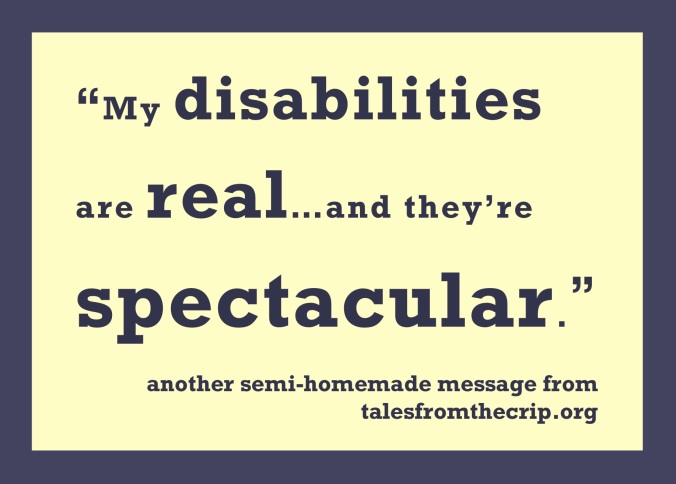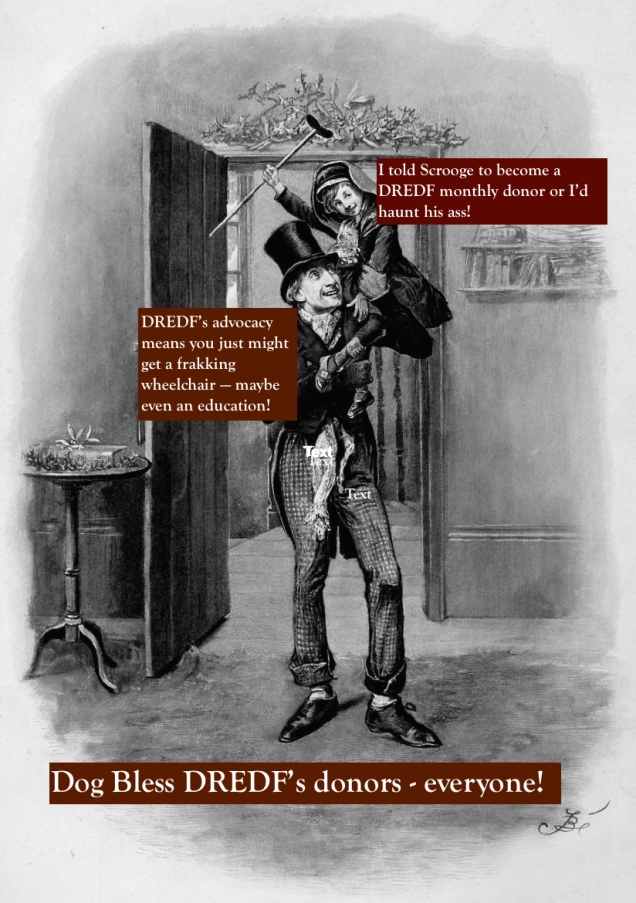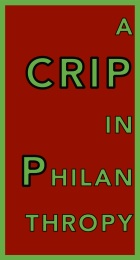This post is part of a blog-weekend protesting the re-emergence of the Muscular Dystrophy Association (MDA) Telethon. Sadly, Kevin Hart and MDA are bringing the charity model and Jerry Lewis back like Zombies of Ableism on October 24. We, the Not-Walking-Not-Dead-Yet, have to use our social capital to stop them in their tracks as the Hartless Crips we are.
I’m proud to be one of the disabled activists organized by disabled filmmaker, writer, and activist Dominick Evans to once again protest an event that perpetuates disability stereotypes, spreads misinformation about neuro-muscular diseases to increase donations, and utterly ignores structural ableism. In 2015, I wrote about the end of the Telethon that inexplicably ran every year on Labor Day and was presided over by the guy who claimed his “kids” could never go into the workplace.
This post revisits portions of it with an eye to the continuing issue of employment – if only because disabled children will once again be working at the Telethon for their health care, and potentially taking some very concerning lessons away from that experience about consent and power. Thank you, Dominick, for your leadership!
Hands-OFF Fundraising in 2020: Consent, Consent, Consent
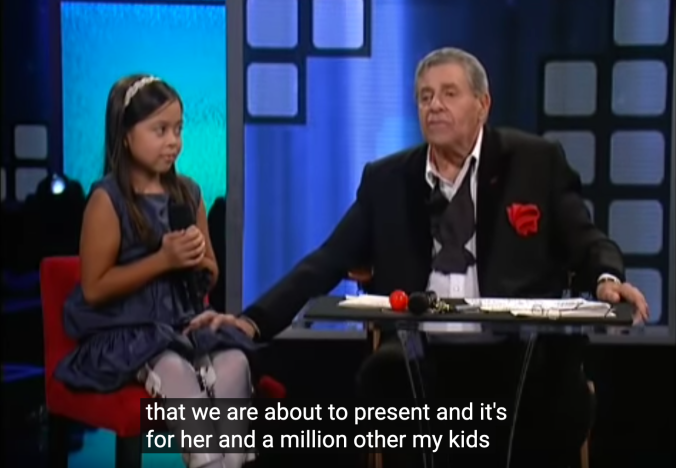
→ In 2020, we need to critique this 2010 image from the Muscular Dystrophy Association (MDA) Telethon in terms of consent as much as we do its infantilizing attitude and fundraising tactics that use disabled people as charity props.
→ MDA needs to be held accountable for their broader transactional narrative in which disabled children are expected to allow strangers to touch their bodies as part of obtaining money for their health care.
→ The “new” Telethon is being held on Oct. 24, during National Disability Employment Awareness Month (NDEAM). There is a connection between the MDA Telethon and employment. What we learn as children is carried into adulthood. The lesson here can too easily become, “I need my paycheck so I have to put up with my boss touching me.”
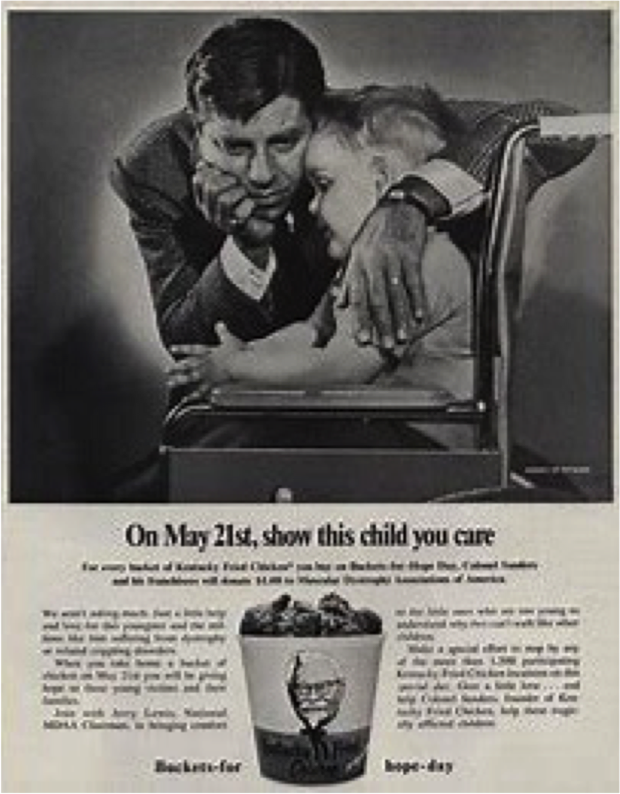
MDA, Jerry Lewis, KFC, and a bucket of reasons why disabled children shouldn’t be used as props in cause marketing charity campaigns.
